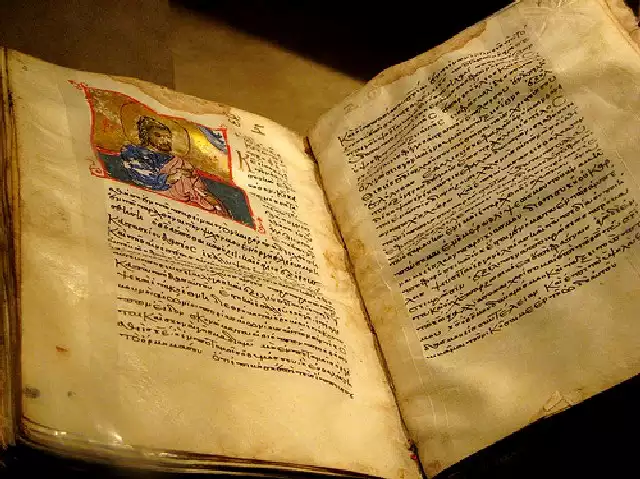Zebadiah | זְבַדְיָה (Hebrew) | Name
Etymology and Semantic Analysis of Zebadiah The name “Zebadiah” originates from the Hebrew word זְבַדְיָה (Z’vadyah), which means “Yahweh has bestowed” or “Gift of Yahweh.” This name is composed of two elements: זָבַד (zavad), meaning “to give,” and יָה (Yah), a shortened form of יְהוֹוָה (YHWH), the tetragrammaton, representing the name of God in the […]
Zaavan | זָעַוָּן (Hebrew) | Name
Etymology and Semantic Analysis The name Zaavan, originating from Hebrew, appears in the Old Testament. Specifically, the Hebrew word זָעַוָּן (Zaavan) signifies agitation or trembling. The semantic field surrounding Zaavan associates with restlessness or unease, hinting at the nomadic and turbulent lifestyle of the era. Biblical references to Zaavan are found in the genealogical records […]
Zacchur | זַכּוּר | Name
Etymology and Semantic Analysis The name “Zacchur” originates from the Hebrew word “זַכּוּר” (Zakkur), which is derived from the root “זָכַר” (zakar), meaning “to remember” or “to mention.” This name is indicative of remembrance, possibly implying “God has remembered.” In the context of the Biblical narrative, names often carry significant meanings that reflect the circumstances […]
Yesternight | לַ֣יְלָה (layilah) | Noun
Etymology and Semantic Analysis The term ‘yesternight,’ an archaic English word, signifies the previous night or last night. It originates from the combination of ‘yester-‘ (meaning ‘previous’) and ‘night.’ In Biblical Hebrew, the word ‘לַ֣יְלָה’ (layilah) conveys a similar meaning, referring to the night or nighttime. This Hebrew term appears in several Old Testament verses, […]
Zaanaim | צְאָנִים (Tse’anayim) | Place Name
Etymology and Semantic Analysis Zaanaim, translated from the Hebrew word צְאָנִים (Tse’anayim), is a place name mentioned in the Old Testament. The root of this Hebrew term, צְאָן (Tse’on), typically refers to a flock, often of sheep or goats, implying a pastoral or grazing locale. The dual form of the word, צְאָנִים, suggests “double pasturage” […]
Zadok | צדוק | (Name)
Etymology and Semantic Analysis The name ‘Zadok’ stems from the Hebrew root צדק (ṣādēq), which means ‘righteous’ or ‘just’. Zadok, a prominent figure in the Old Testament, served as a priest during King David’s and Solomon’s reigns. The first mention of Zadok is in 2 Samuel 8:17, where he is appointed as a priest along […]
Zaanan | צַאֲנַן | Name
Etymology and Semantic Analysis The name ‘Zaanan’ derives from the Hebrew word ‘צַאֲנַן’ (Tsaa’nan), mentioned in the Old Testament. It occurs only once in the Bible, in the book of Micah 1:11. The verse depicts the lamentation and mourning of various towns in Judah in anticipation of the judgment coming upon them. The etymological root […]
The Second Book of the Kings, 2 Kings

Translation in British English (The Second Book of the Kings) 1:1 Subsequently, Moab revolted against Israel following Ahab’s demise. 1:2 Ahaziah plummeted through a lattice in his upper chamber in Samaria, becoming gravely ill. He dispatched messengers, instructing them, “Seek guidance from Baalzebub, the deity of Ekron, regarding my recovery from this illness.” 1:3 Yet, […]
Yoke | Ζυγός (zygos) | Noun
Etymology and Semantic Analysis The word ‘yoke’ in English is a direct translation of the Greek word ‘ζυγός’ (zygos), signifying an instrument used to join two animals, typically oxen, together for the purpose of plowing or pulling a load. This concept is present throughout the Bible, symbolizing a range of meanings from oppression and burden […]
The First Book of the Kings | first kings

Translation in British English 1:1 Now King David, advanced in years, found warmth eluding him, even swathed in garments. 1:2 Therefore, his attendants proposed, “Let a young maiden be sought for our lord the king; let her attend to the king, and lie in your embrace, that my lord the king may gain warmth.” […]
Moses: The Reluctant Liberator Who Rescued His People from Bondage

Moses was the towering historical figure who led the Israelites out of slavery in Egypt in perhaps the 13th century BCE. As a baby, the story goes, he was placed in a basket and set adrift on the Nile by his Hebrew family to save him from an Egyptian decree that all newborn Hebrew boys […]
Jaazaniah | יַעֲזַנְיָה (Hebrew) | Name
Etymology and Semantic Analysis Jaazaniah, a Hebrew name found in the Old Testament, originates from יַעֲזַנְיָה (Ya’azanyah), signifying “Yahweh hears.” This name appears in several instances, notably in 2 Kings 25:23 and Jeremiah 35:3, where Jaazaniah son of a Maacathite is mentioned as a military leader during the Babylonian siege. Another Jaazaniah, the son of […]
Ruth

Translation in British English 1:1 In those days, when judges held sway, a famine befell the land. A man from Bethlehemjudah, along with his wife and two sons, journeyed to dwell in the lands of Moab. 1:2 This man, named Elimelech, and his wife Naomi, had two sons, Mahlon and Chilion, Ephrathites of Bethlehemjudah. They […]
Quiver | אשפה (Hebrew: ‘ashpah) | Noun
Definition The English word “quiver,” in its biblical context, typically refers to a container for holding arrows. This imagery is often employed to symbolize readiness, preparedness, or the provision of tools for a specific purpose. Various Translations The King James Version (KJV) often uses the word “quiver,” whereas other translations might opt for terms like […]
Old Testament | Core Concepts and Historical Analysis

The Old Testament, a term predominantly used within Christianity, refers to the collection of texts traditionally regarded as sacred scripture by Jewish and Christian communities. Etymologically, the phrase “Old Testament” originates from the Latin “Vetus Testamentum,” which itself is a translation of the Greek “Παλαιὰ Διαθήκη” (Palaià Diathḗkē), meaning “old covenant.” This nomenclature signifies the […]
Bible | Its Origins and Impact

The Bible stands as a cornerstone of religious and cultural history, encompassing a collection of texts revered in Christianity and Judaism. Etymologically, the term ‘Bible’ originates from the Greek ‘ta biblia’, meaning ‘the books’, signifying its nature as a compilation of various writings. Historically, the Bible’s formation spans centuries, with its earliest portions dating back […]
Abiathar
A Priestly Figure at the Crossroads of Biblical History and Theological Discourse Abiathar, whose name in Hebrew (אֶבְיָתָר) is derived from אָב (’āḇ), meaning “father”, and יֶתֶר (yéther), signifying “remains” or “excelled”, is emblematic of continuity or superiority over one’s paternal lineage. In the scriptural narrative, Abiathar emerges as Ahimelech’s son, the priest at Nob. […]
